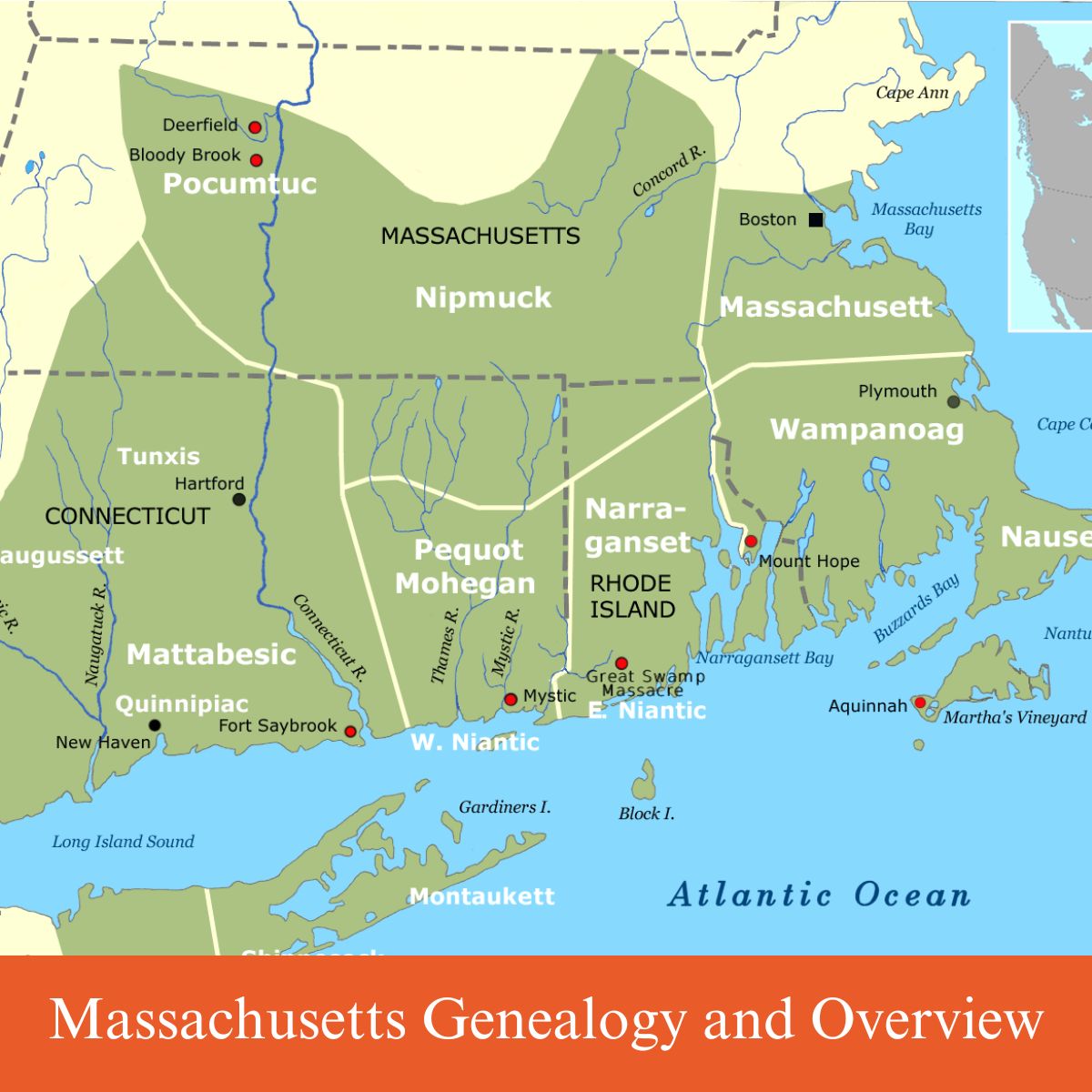Massachusetts is a state that is full of interesting history that dates back to the Pilgrims and Puritans. It is recognized as the birthplace of the American Revolution and home to many influential founders such as John Adams, Samuel Adams, John Hancock, and Paul Revere, and was even the birthplace of Benjamin Franklin.

Understanding Early Massachusetts History
It is important to understand the early years of Massachusetts History.
As I stated above, Massachusetts is an old state with much history, which means that there are many state and county border changes, and records may have been kept in different locations.
Also, Massachusetts was primarily settled by two different groups, and it is important to understand the difference.
Pilgrims: Most Americans know the story of the Pilgrims. The Pilgrims wanted to separate from the Church of England and were granted a charter in the early 17th century. They arrived and founded Plymouth Colony in 1620. They had a rough start and were saved by a group of friendly Wampanoag Indians led by Chief Massasoit.
Within their tribe was Squanto. Squanto communicated with the Pilgrims and taught them how to farm on the beaches of Massachusetts.
That year, the Pilgrims celebrated the harvest, and that would eventually become known as Thanksgiving. That is the synopsis of the Pilgrims.
Puritans: The Puritans were different from the Pilgrims in that they wanted to purify the Church of England. When their efforts failed, they were also granted a charter and sailed for Massachusetts in 1629.
They would found what became known as the Massachusetts Bay Colony. This colony was much more organized than the Pilgrims and exploded in population. There were other colonies that would split off from Massachusetts Bay, such as Rhode Island and Connecticut.
While Plymouth gets much of the publicity because of their unique story, Massachusetts was primarily founded by the Puritan leaders of this colony. Plymouth would eventually be absorbed by Massachusetts Bay.
These were the founding years of Massachusetts. If you are fortunate enough to have an ancestor who lived during this time period, then there is a good chance you will find some interesting records about them.
Massachusetts Genealogy: Census Records
Federal Census Records are a family genealogist foundation to establishing their line back each generation. Massachusetts has most of the Federal Census Records that are available to all other states and has the earlier census records as well.
1790 Census: One of the most difficult censuses records to understand is the 1790 Census record. It is arranged alphabetically and only has heads of households listed. While this census is the same for all states in the United States at the time, Massachusetts holds one major distinction.
Slavery was abolished in Massachusetts by 1783, so in the 1790 census, you will find people of color listed as heads of households. You will be able to find these folks in the "all other freed people column."
Since slavery had been abolished, there also should not be any ticks found in the slaves' column.
If you are of African-American heritage and your ancestor lived in Massachusetts, then there is a chance you will find the actual name of your ancestor within these records.
1860 Census: The 1860 state census is the same for all states of the union, including Massachusetts, but with one major distinction. In the column where the enumerator of the census would put the color of the ancestor's skin, it is often left blank.
There were supposed to be designations for White, Black, and Mulatto (nothing for Native Americans), but often this column is left blank, which can make finding an ancestor of African-American descent a little difficult to track.
To figure this out, you will need to look into the two-state censuses available in 1855 and 1865.
State Censuses: The State Censuses of 1855 and 1865 provide more information for those trying to track down their ancestors. If you are searching for an African-American ancestor, then you will be able to see their racial designation in both the 1855 and 1865 census records.
This will help aid your research that was found in the 1860 federal census records. In the 1865 state census, there is also a designation for Native American ancestors, which would be the first time in Massachusetts History that this ethnic group had distinction.
Massachusetts was one of the more educated states in the Union, and it stems from its founders. When looking at the State census records, you will find that the column for illiterate is mostly blank, and that includes people of color.
Most citizens of the commonwealth were able to read. If the column is ticked for illiterate, then it is most likely an immigrant of Irish descent.
